The Subject of “Cultural Change in the Context of Globalization of Communication and Social Practices” Was Discussed in the International Symposium Held at Our University
06.12.2024
Hosted by the Turkish-German University, the international symposium titled “Cultural Change in the Context of Globalization of Communication and Social Practices”, organized by the Faculty of Culture and Social Sciences between November 28-30, 2024, was realized with intensive academic contributions. The event addressed contemporary social change processes with an interdisciplinary approach and provided participants with the opportunity to discuss the topics.
In the opening session of the symposium, our University Rector Prof. Dr. Cemal Yıldız emphasized the effects of globalization on social structures and cultural practices. After the opening speeches made by our Vice Rector and Vice Dean of the Faculty of Culture and Social Sciences Prof. Dr. Aysel Uzuntaş, our Faculty Coordinator and K-TDU Vice President Prof. Dr. Michael Waltisberg, our Faculty Unit Coordinator Assoc. Prof. Dr. Rainer Schmidt, the presentations were held.
The symposium was divided into sessions titled “Cultural change and language change”, “Cultural heritage for the future. Stones, texts and language”, “Cultural practices and media use”, “Global social practices in the example of migration and social crises”. Presentations examining the spatial, historical and digital dimensions of cultural change from linguistic and semiotic frameworks were made in the sessions. In these sessions, different aspects of cultural change from historical and interdisciplinary perspectives, the effects of artificial intelligence and algorithmic methods on cultural and communication studies were evaluated. In this context, the effects of digital technologies on the change of social structures were discussed in depth. In addition, the cultural and social effects of migration were focused on. Topics such as cultural changes in cities, the shaping of language through social change, and semiotic representations of immigrant identities were discussed in detail.
During the three-day symposium, themes such as the use of language in the context of social codes, the effects of digitalization, migration studies, and identity construction processes were discussed from many perspectives. Offering an international platform for understanding cultural change and globalization processes, the interdisciplinary event in question provided the opportunity for the exchange of information and ideas within the scope of different academic perspectives. The symposium, which was encouraged by the German Academic Exchange Service DAAD, was attended by distinguished scientists, researchers and students from various national and international academic institutions.
In the opening session of the symposium, our University Rector Prof. Dr. Cemal Yıldız emphasized the effects of globalization on social structures and cultural practices. After the opening speeches made by our Vice Rector and Vice Dean of the Faculty of Culture and Social Sciences Prof. Dr. Aysel Uzuntaş, our Faculty Coordinator and K-TDU Vice President Prof. Dr. Michael Waltisberg, our Faculty Unit Coordinator Assoc. Prof. Dr. Rainer Schmidt, the presentations were held.
The symposium was divided into sessions titled “Cultural change and language change”, “Cultural heritage for the future. Stones, texts and language”, “Cultural practices and media use”, “Global social practices in the example of migration and social crises”. Presentations examining the spatial, historical and digital dimensions of cultural change from linguistic and semiotic frameworks were made in the sessions. In these sessions, different aspects of cultural change from historical and interdisciplinary perspectives, the effects of artificial intelligence and algorithmic methods on cultural and communication studies were evaluated. In this context, the effects of digital technologies on the change of social structures were discussed in depth. In addition, the cultural and social effects of migration were focused on. Topics such as cultural changes in cities, the shaping of language through social change, and semiotic representations of immigrant identities were discussed in detail.
During the three-day symposium, themes such as the use of language in the context of social codes, the effects of digitalization, migration studies, and identity construction processes were discussed from many perspectives. Offering an international platform for understanding cultural change and globalization processes, the interdisciplinary event in question provided the opportunity for the exchange of information and ideas within the scope of different academic perspectives. The symposium, which was encouraged by the German Academic Exchange Service DAAD, was attended by distinguished scientists, researchers and students from various national and international academic institutions.

